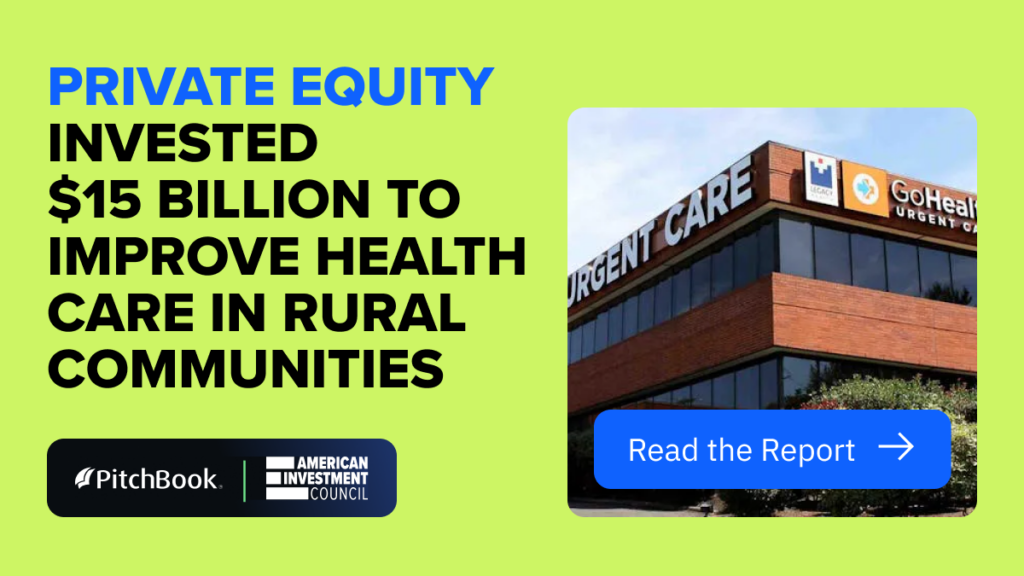Urgent Care Centers & Rural Health Care are Stronger Because of Private Equity Investment

In part two of the American Investment Council’s (AIC) new health care series, we are spotlighting how private equity strengthens urgent care centers and improves access in rural communities across America.
Investing $15 Billion to Improve Health Care in Rural Communities
Private equity has invested $15 billion in more than 250 urgent care clinics as of 2020. Many of these private equity-backed urgent care centers have opened more locations in rural America – a part of the country that faces extensive barriers to critical and, at times, lifesaving health care services. More than 130 rural hospitals have closed nationwide from 2010 to 2021, and in 2023, 65 percent of rural areas experienced a shortage of primary care physicians. Private equity investments in urgent care centers help get rural patients the care they need over shorter distances while also not overwhelming the limited number of hospitals in these areas.
Keeping Rural Clinics Open as Physicians Retire
Physician retirements are often a key reason clinics shut down, ending their ability to employ support staff and treat longstanding patients. However, with private equity investment, many clinics do not close and are sometimes folded into larger, private equity-backed practices that can expand access to different regions while simultaneously improving efficiencies and reducing operating costs. This is a critical benefit to rural communities, which cannot afford to lose specialized health care treatment centers as many physicians in these areas retire.
Urgent Care Spotlight: MedExpress in Appalachia
In 2017, West Virginia University conducted a study of MedExpress, a chain of Appalachian urgent care centers that has been heavily supported by private equity. With private equity investment, MedExpress was able to open new locations in more rural areas throughout the region, where hospital closures had become more common. According to the study, new MedExpress clinics were “associated with fewer short-term admissions to hospitals, fewer inpatient days, fewer emergency room visits, and a reduction in outpatient visits at hospitals.” Patients could now travel shorter distances to get the care they needed while not overwhelming the limited number of hospitals in their region.
Opening Specialized Clinics
Private equity investments help specialized clinics open new locations, hire more doctors and staff, and make healthcare services available to more patients in historically underserved communities. These specialized clinics treat specific needs, like orthopedics, radiology, dermatology, ophthalmology, and gynecology, as well as mental and behavioral health services.
Urgent Care Spotlight: GoHealth

Sarah Arora, Chief Growth Officer of GoHealth Urgent Care, recently discussed how private equity investments helped the company grow into more than 200 locations and hire quality providers and staff. “We had not a single center to speak of in 2014. And we took private equity investment at that point. And, you know, from my perspective, it’s allowed us to do really two things. One is you get to invest in the technology and the talent … [two] is we’ve been able to just dramatically increase access to care by delivering care where people live their lives … that’s been a boon for us to be able to scale the organization, really without compromising quality,” said Sarah.
The first release in this series spotlights how private equity supports innovative medical devices can be found here.
The American Investment Council’s full report on how private equity complements and strengthens quality, affordable health care can be found here.


